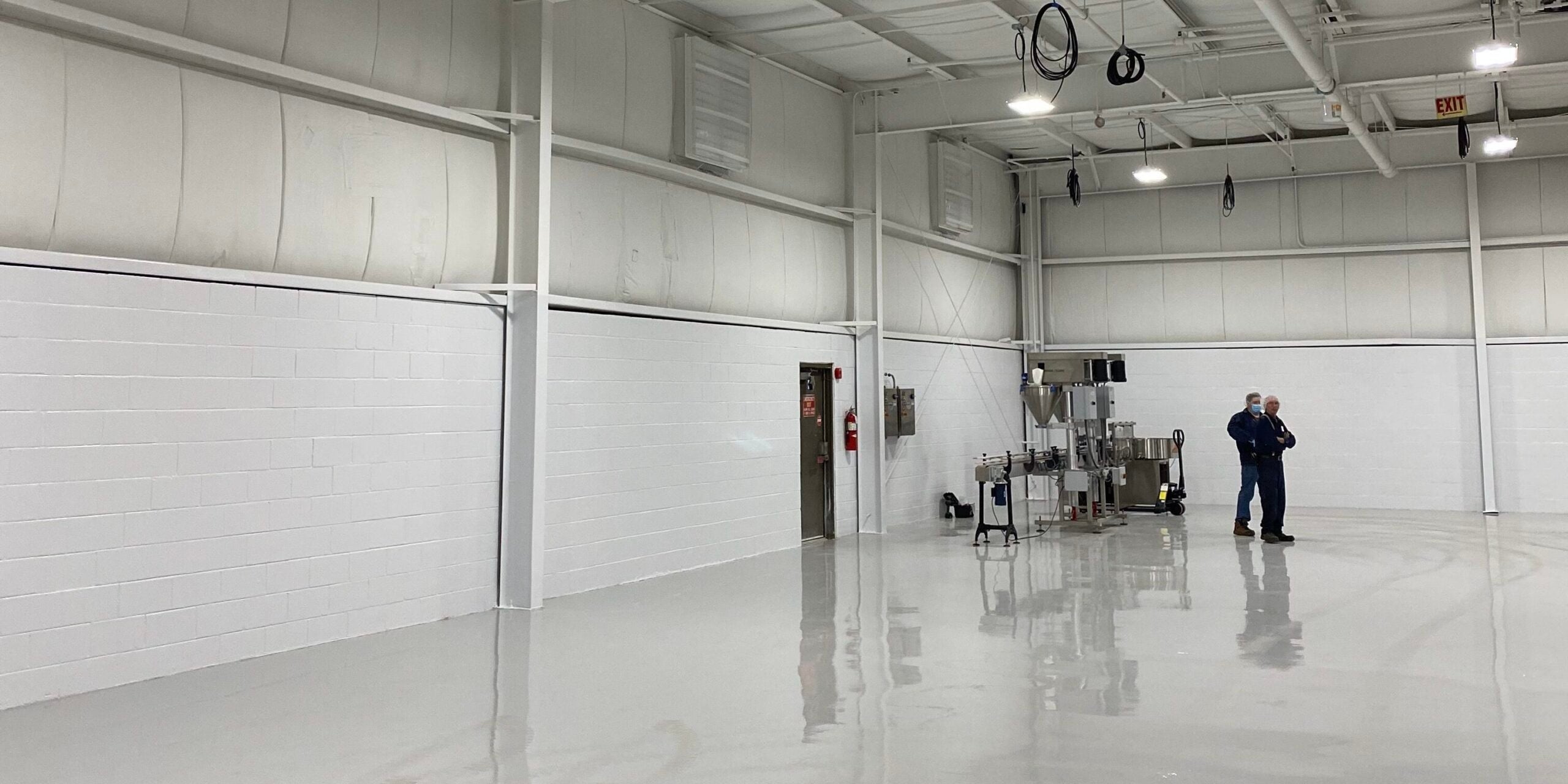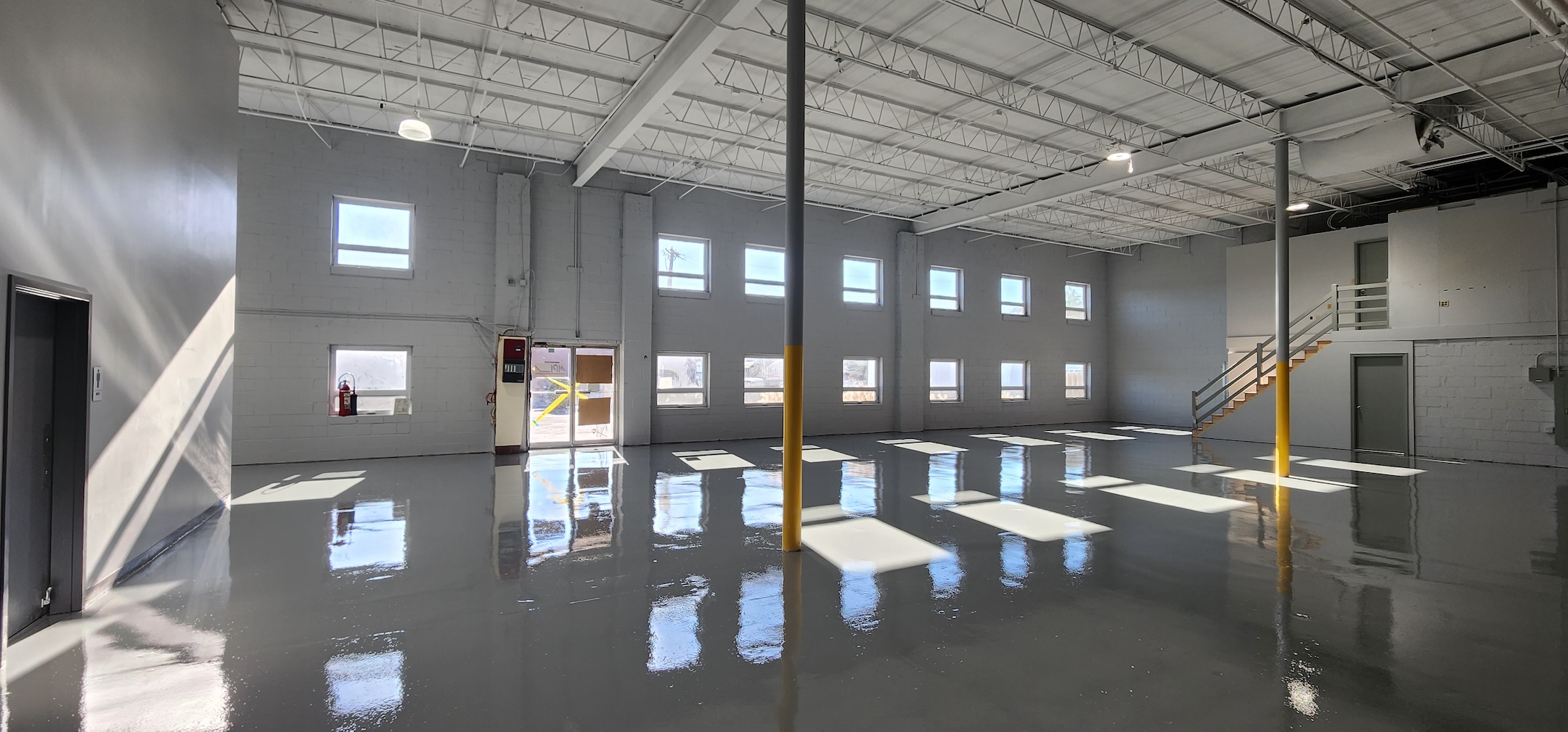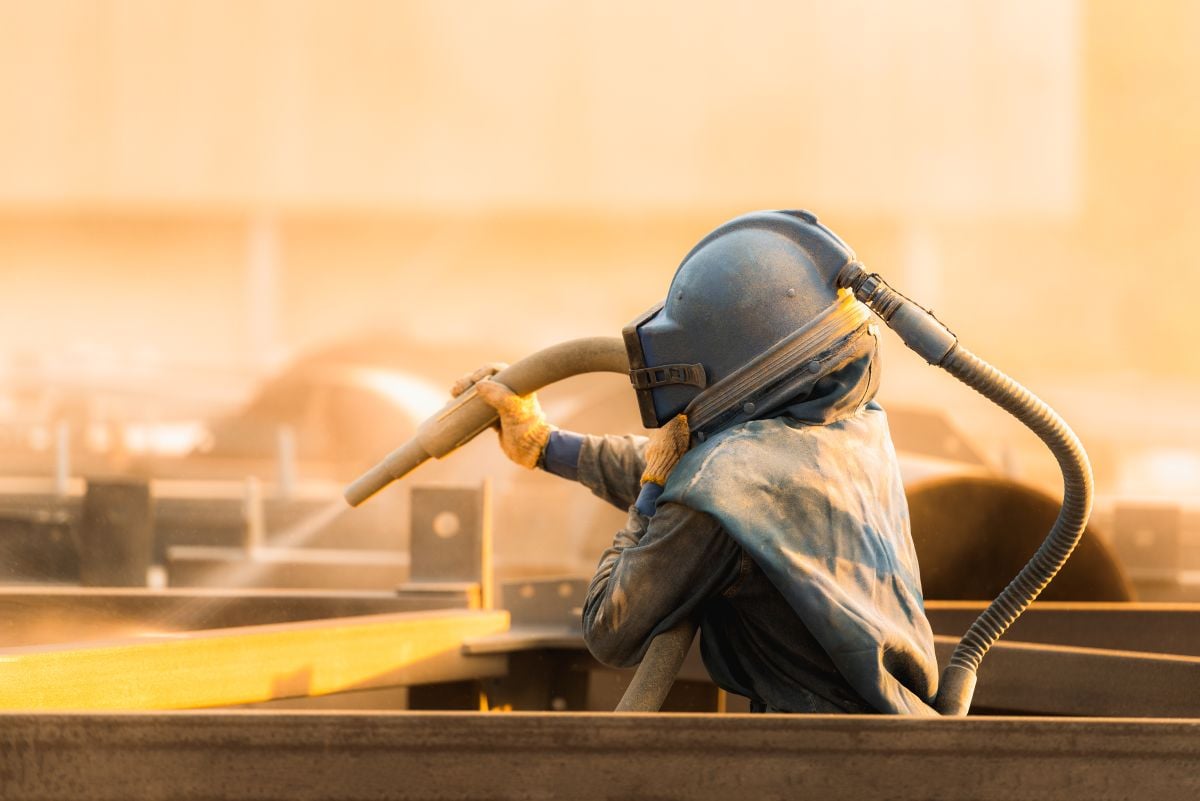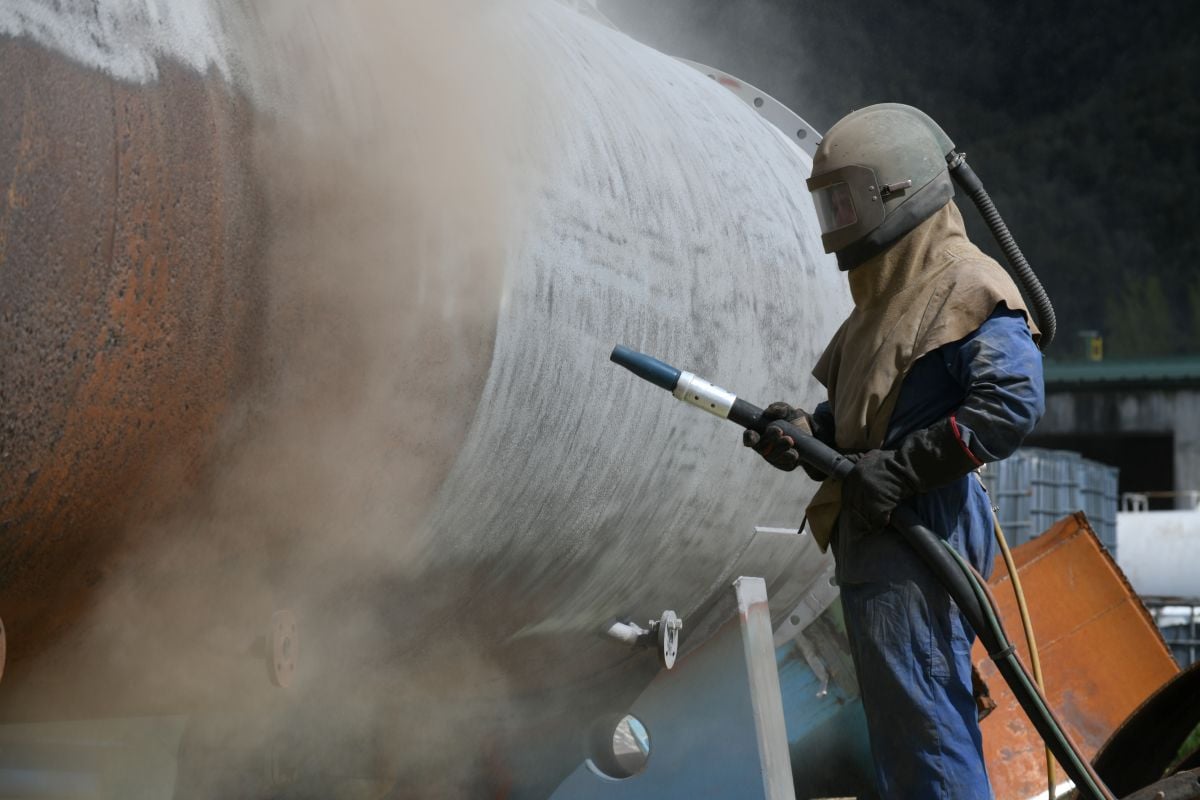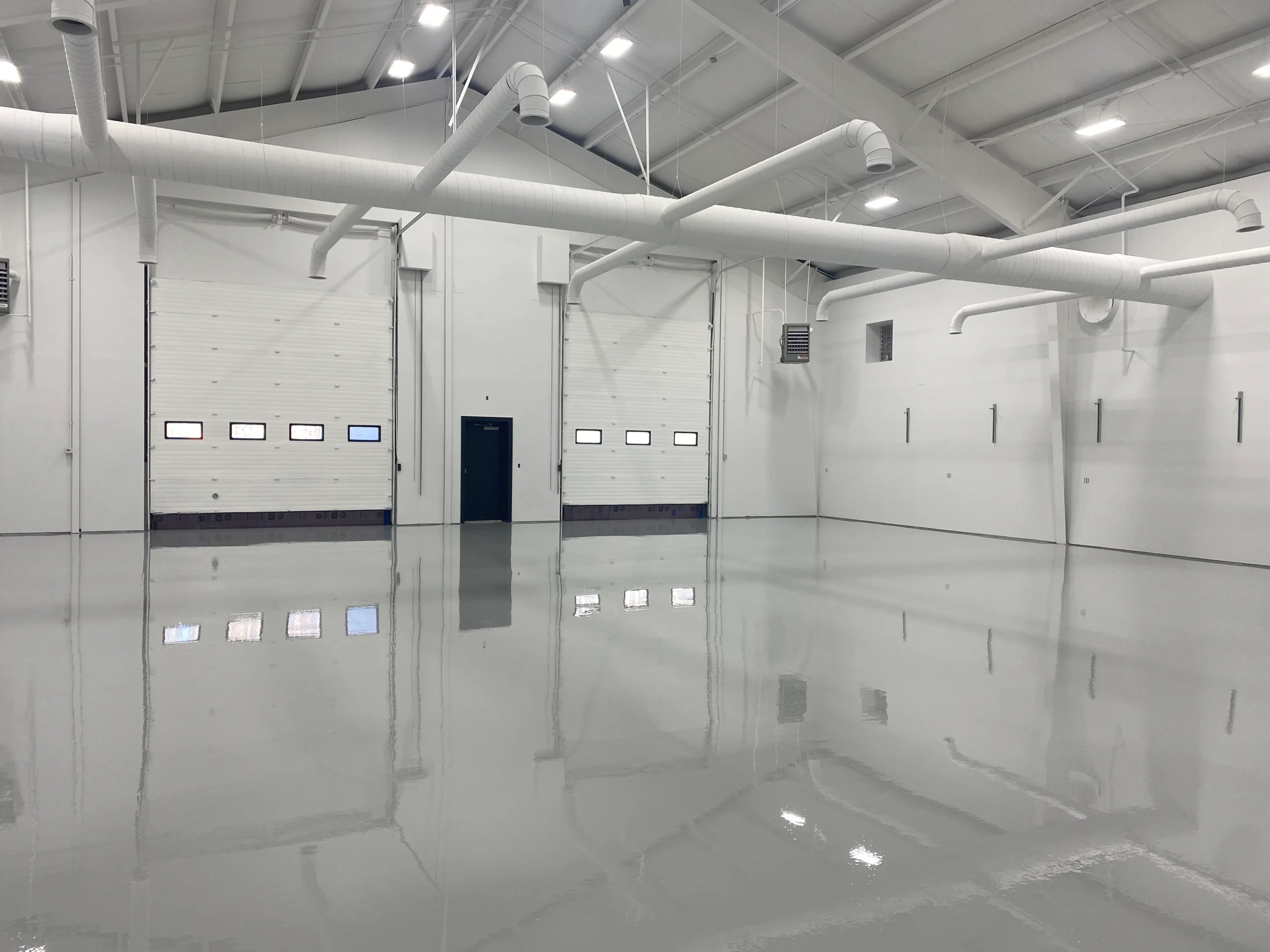Let’s face it: the floors of your commercial space take a beating. That’s why you need a finish that looks good and stands the test of time. Both urethane and epoxy coatings offer this level of durability for concrete floors, making them excellent choices for your space.
But which finish makes the most sense for your unique situation? What’s the difference between urethane and epoxy floor coatings in the first place?
We’ll answer those questions and provide some examples of when it makes sense to use both in the sections below.
What is Urethane Flooring?
Urethane floor coatings (also called polyurethane) are flexible and durable. They create a glossy and smooth finish that protects your concrete floor from cracks, scratches, drops, and more.
The coating is also resistant to UV light, so it doesn’t fade or turn yellow over time from sun exposure.
Here are some other characteristics when it comes to urethane flooring:
- Resistant to scratches and drops
- UV light resistant
- Usually quicker application process
- Resistant to chemicals and extreme temps
- High gloss finish that is visually appealing
What is Epoxy Flooring?
Epoxy flooring is similar to urethane, as both are strong options in high-traffic areas while offering resistance to chemicals, moisture, spills, and more.
- Here are some other attributes you should know about epoxy flooring:
- Heat resistance; can handle extreme temps
- Great adhesion properties; will stick to concrete, metal, wood, etc.
- Can add anti-slip sealants for further safety
- Generally more budget-friendly than urethane
- Resistant to moisture, spills, and chemicals
What’s the Difference Between Urethane & Epoxy Flooring?
There are several differences between urethane and epoxy floor coatings, and it’s important to consider these differences when deciding on a finish.
Where Urethane Shines
Urethane cures faster: This makes urethane often easier to apply and install. Epoxy flooring can take even longer to dry and cure in humid temps.
Resistant to UV lighting: This makes urethane a great choice for outdoor areas that will have the sun beating on them. Epoxy is not as resistant to UV rays and could fade sooner.
Urethane is more flexible. It has a little more “give” than epoxy, which is good for areas with movement or large machinery that causes vibrations.
Urethane usually lasts longer: It can last 10-20 years with proper maintenance under certain conditions. Epoxy usually lasts around 5-10 years in industrial settings.
The Pros of Using Epoxy
Epoxy can be less expensive: They are a more budget-friendly option, and sometimes, it makes sense to invest in epoxy coatings for one section and urethane for another – or even use both in combination (more on that later).
Epoxy adheres better: This makes it a friendlier choice for different surface materials or if you have several different types of surface materials to cover.
Resistant to scratches and damages: Both coatings provide these features, but epoxy is especially great for areas with heavy foot and vehicle traffic.
When to Use Urethane Flooring?
After looking at the pros and cons of urethane flooring, there are some obvious situations for when to use it, including:
- Outdoor areas: Urethane provides better protection against UV rays.
- Extreme temperatures: Epoxy has some temperature-resistant properties, but urethane tends to perform better in the most extreme and demanding environments temperature-wise.
Overall, the choice between urethane and epoxy coating comes down to the details of the project. This includes the specific needs of the flooring in that area, the budget, and the type of traffic/use of the floor.
When to Use Epoxy Flooring?
Epoxy flooring has its time and place as well, including:
- Floors that need impact resistance: Epoxy coatings are better at resisting scratches and scuffs from impacts.
- Budget-friendly option: Epoxy usually costs less and has lower upfront costs as a budget-friendly option, depending on the size and scale of your project.
- As a foundation layer: Epoxy adheres better to more surfaces, so it’s possible to start with an epoxy coating on the foundation and finish with a urethane topcoat.
Can You Use Urethane & Epoxy Flooring Together?
Using epoxy and urethane coatings together in many commercial and industrial situations makes sense. As explained above, both have properties that set them apart.
Epoxy adheres and sticks better to a wider range of surfaces. It’s also usually less expensive. For these reasons, starting with epoxy flooring on the foundation makes sense. Then, you can finish with a urethane topcoat to get the benefits of UV resistance, holding up in extreme temperatures, and more chemical/spill resistance that’s easier to maintain.
Also, by doing this, you are essentially protecting the thicker epoxy coating from wear and tear, which could extend its life to match the urethane topcoat.
Need Help? Contact McLean Company!
Every situation is different; sometimes, it takes a professional to consult which flooring option makes sense for your commercial case.
If you are located in Boston, MA, or the greater New England area, then McLean Company stands out as your trusted industrial and commercial flooring provider.
We have served all kinds of commercial environments (see our previous work here) over several decades, so we understand what flooring solutions work best depending on your needs.
Give us a call today at 978-774-4330 with any questions you might have. We are here to help!
Already have a project in mind? Go ahead and get a quote by filling out our online form.
